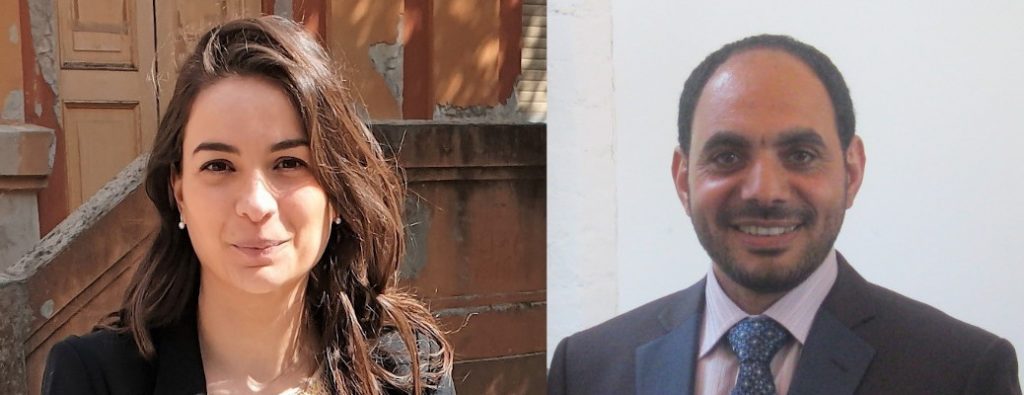Please join us as we offer our congratulations to Dr. Coppola and Dr. Ebeid, who were awarded the highly competitive and prestigious Marie Skłodowska Curie fellowships for their proposals UNCERTIR and ISLAPAP, and are joining the HSLL team in the course of 2021.
Dr Floriana Coppola joins us from the University of Bologna where she investigated the degradation of historical and contemporary papers using destructive and non-destructive analytical techniques. She developed surveys based on NIR spectroscopic data and efficiently used them for conservation scenario modelling, however the question of model uncertainty is currently the focus of her MSC project UNCERTIR.
For successful conservation, material properties of heritage objects need to be known to a level of accuracy that allows meaningful decisions and routine analytical monitoring of change. Non-destructive methods of characterisation of heritage materials are thus increasingly in demand, and spectroscopic techniques, especially IR-spectroscopy, in combination with chemometric data analysis represent the conventional approach for both identification and quantitative analysis. However, the data is often associated with significant uncertainty, leading to their limited acceptance among the users. Therefore, UNCERTIR focuses on the analyses of the causes of the uncertainty of IR spectroscopy-based quantitative methods, providing, for the first time, the users with a comprehensive evaluation of analytical uncertainty for heritage material characterisation. The project will be supported by Dr. Jasna Malešič from the National and University Library of Slovenia and Dr. Manfred Anders from ZFB GmbH, where Floriana will be spending periods of secondment.
Dr Hassan Ebeid is joining us from the Ain Shams University in Cairo, where he researched paper history and conservation. In his MSC project ISLAPAP, he will carry out analysis of historic texts focusing on Islamic paper- and in-making, and carry out material science analysis related to these little-known materials.
Islamic paper is a particularly underexplored aspect of Islamic material culture as our knowledge of historic paper and ink is dominated by research into Western papermaking. ISLAPAP aims to fill the knowledge gap through material science research of both reference material collections and actual manuscripts, and through archival research into paper- and ink-making recipes in medieval and early modern art-technological sources and treatises. The project will further illuminate historic papermaking practices through experimental evidence, which will benefit manuscript scholars. Analytical science will be used to explore the durability of Islamic paper to develop preventive conservation advice. This knowledge will be of use to libraries and archives with Islamic paper collections.
Both fellows will be mentored by professor dr. Matija Strlič.

